I grew up amid its demonstrations and rallies, its headlines and TV coverage.
I remember the dinnertable debates between my dad, a veteran of World War II, and my brother, who was of prime draft age. I remember my mother's worry, even though I was too young to comprehend it fully.
And so when I saw an identified Purple Heart medal from Vietnam at auction online about a year ago, I placed a bid without hesitation.
It had been presented to a Marine lance corporal in the 3rd Marine Amphibious Force, 3rd Combined Action Group. He was wounded in April 1969 -- around the time of his 20th birthday, I later found out. With it came the original paperwork that accompanied the medal, advising this soldier (I'll call him "Frank" to protect his identity) that he "may take justifiable pride in this award for your contribution to your country in the Vietnam conflict" for wounds received in the "struggle against Communist aggression."
The man who sold it to me offered no provenance other than that it was bought at a garage sale near Buffalo, N.Y. I did some fruitless preliminary research on Frank and put the project aside.
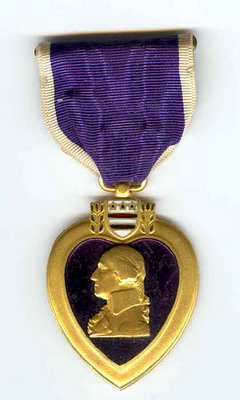 On Memorial Day, my thoughts returned to the Purple Heart that I had tucked away in my book cabinet.
On Memorial Day, my thoughts returned to the Purple Heart that I had tucked away in my book cabinet.I did a Google search of Frank's unit, just as it appeared on his citation: "III Marine Amphibious Force, 3rd Combined Action Group." I got just two matches.
Meanwhile, I found a Web site put together by a man who collects Purple Hearts. I asked him how to go about researching the recipient. He told me to request copies of Frank's military records from the National Archives, but warned that the amount of information released is quite limited due to privacy concerns.
He also suggested researching Frank's unit on the Web. "Try Googling '3rd Combined Action Group,' " he wrote in an e-mail.
That was the key. In my prior search, I had entered too much information. This time, I did Google searches on "3rd Combined Action Group" and "3rd Combined Action" and came up with more than 40 matches.
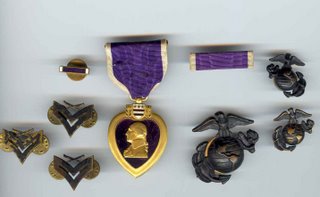 Frank's Purple Heart and Marine Corps cap and collar insignia. Based upon the serial number engraved on its edge, the medal is World War 2 surplus, a collector informed me. There were so many made during that war that the back stock was still being distributed through the Korean and Vietnam wars.
Frank's Purple Heart and Marine Corps cap and collar insignia. Based upon the serial number engraved on its edge, the medal is World War 2 surplus, a collector informed me. There were so many made during that war that the back stock was still being distributed through the Korean and Vietnam wars.Among them was a Web site devoted to the Marine Corps' Combined Action Program, a lesser-known but fascinating chapter in the history of the war. The CAP, which ran from 1965-71, assigned squads of about 15 Marine riflemen plus a Navy corpsman to villages along the central coast in hotly contested territory. They were almost always led by a non-commissioned officer, usually a sergeant but sometimes a corporal. The men would live in these villages for a year, participating in all aspects of village life and helping to defend the inhabitants against enemy attack by fighting alongside local militia known as Popular Forces.
A Marine veteran of a CAP unit described the program on a Web site as "like the Peace Corps with guns."
These platoons were seen as an alternative to the prevailing "search and destroy" tactics then favored by the U.S. military, in that the squads didn't leave villages after clearing them of enemy forces. The program, intended to build goodwill with the Vietnamese, is viewed by historians and participants as one of the success stories of the war.
The Marines assigned only their best soldiers to the program. About 5,000 served in the CAP ranks during the six years of the program.
Casualties in the platoons were very high because the units served in isolated areas far from reinforcements. They were constantly on the move in the areas surrounding their villages. They were at the very front of the front lines.
The units' unofficial motto was "We're All Alone in Indian Country."
Frank served in one of the 3rd Combined Action Group's 31 platoons somewhere in Thua Thien province, near Hue and Phu Bai, about a hundred miles from the Demilitarized Zone that divided North and South Vietnam.
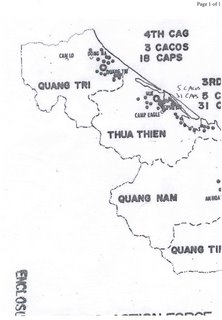
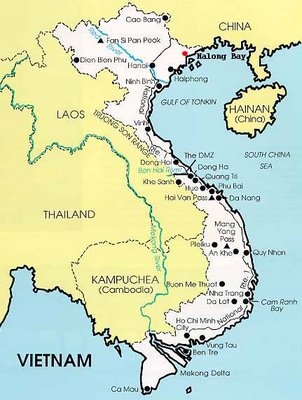
Now I wanted to learn more about Frank.
About a week ago, I checked a score of CAP- and Vietnam-veterans-related Web sites to see if he belonged to any veterans groups, and to inquire whether anyone had known him.
No luck so far.
Then I searched an online database of public records to which I have access at the newspaper where I work.
All I had were Frank's name (his surname is fairly common) and a general idea of where he came from, based on the account from the man who sold me the medal that he had acquired it near Buffalo, N.Y.
My search quickly narrowed to one man. The name was an identical match and his age (he was born in April 1949) was within the right range.
I discovered a man who had moved around a lot within the past dozen years. I checked all the addresses and phone numbers I found, all of them dead ends.
His last known address is a post office box.
I called the post office in that town and asked whether this man still maintained a box there.
"Sorry, can't give you that information," the clerk said. "Privacy rules."
I explained why I was searching for Frank.
"Wait a minute," the clerk said, putting me on hold. After a half-minute he was back on the line. "Look, all I can tell you is that if you were to address a letter to that man at that box number, he'll get it. Either he's picking up his mail or someone's picking it up for him."
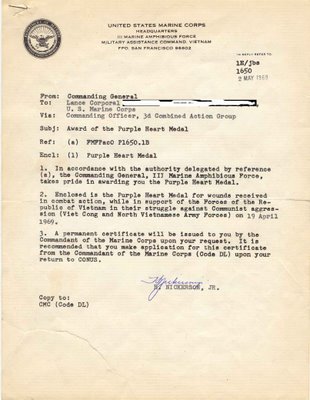
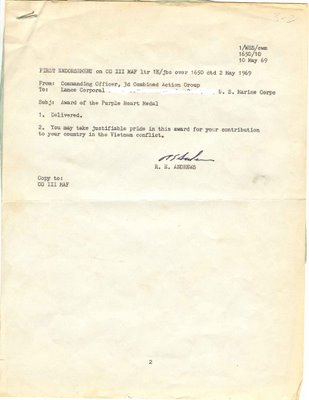 Paperwork that accompanied Frank's Purple Heart medal. His name and service number have been concealed to protect his identity.
Paperwork that accompanied Frank's Purple Heart medal. His name and service number have been concealed to protect his identity.I spent an hour deliberating what to do.
I would love to give this medal back to Frank. A CAP Marine veteran with whom I've struck up a correspondence told me that few veterans would willingly part with something like a Purple Heart. The medal represents the literal giving of a piece of the self of the person upon whom it is bestowed.
It could be that the medal was sold by an ex-wife or girlfriend after an acrimonious divorce or breakup. Perhaps it was sold by one of Frank's kids. Maybe Frank sold it to exorcise the ghosts of his past. Or to raise badly needed money.
Maybe Frank died recently, his personal effects scattered to the four winds.
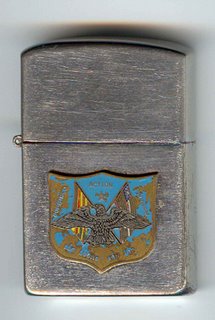
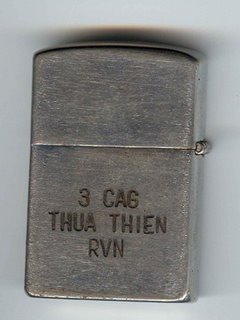 Souvenir lighter that belonged to a CAP Marine from the same unit as Frank: 3[rd] C[ombined] A[action] G[roup], THUA THIEN [province], R[epublic of] V[iet] N[am]
Souvenir lighter that belonged to a CAP Marine from the same unit as Frank: 3[rd] C[ombined] A[action] G[roup], THUA THIEN [province], R[epublic of] V[iet] N[am]Would Frank be grateful that someone would take the trouble to return to him a possession fraught with so much emotional significance? Would he resent the intrusion, the awakening of sleeping dogs? Would he accept the medal only to sell it again?
Would my curiosity rip open old wounds and add to a man's misery?
Did I even have the right man?
I decided to write to Frank. I would apologize for the intrusion. I would detail how and why I located him. I would tell him of my great interest in learning more about what he saw, thought and felt during his time in Vietnam.
I would offer him my contact information, hope for the best and resolve to drop the issue forever if I didn't hear from him within a reasonable time.
That letter was mailed Tuesday.
I'll post any updates on my blog.
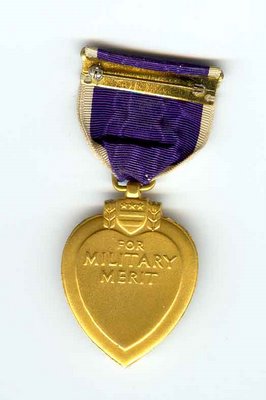
14 comments:
Holy cow, Michael - that's a story worthy of a newspaper article, or even a novel... I'm riveted, wondering as to the eventual outcome! Best of luck, my friend... Perhaps you'll be acknowledging his sacrifices for the very first time, with the pride they deserve...
That was impressive and very informative...no wonder why I can't stay away from your little corner of cyberspace!
Thanks, Kohai. Thanks, LB, and great to hear from you!
What a great story! What a life some people have led. I will be waiting with bated breath for the updates.
did you visit Vietnam when you were in the Far East?
Thanks so much, qaminante!
No, I didn't visit Vietnam during the years I lived in Japan. Most of my colleagues used every holiday as an opportunity to explore outside Japan, but I used holidays to explore the country in more depth. So, I've become very, very familiar with Japan but not with other places in Asia.
I really want to visit Vietnam, though. Someday ...
Wow michael, that really is an amazing story! wishing luck to both of you.
Thanks, Oxeye.
I'm looking forward to see where this adventure leads.
Thanks, lone wolf. Me, too.
I applaud you, Sir, for your efforts to find this gentleman. Your writing is beautiful and very touching ... I look forward to the reunion of Frank and his symbols of honor. As the mother of Marines, I thank you for caring enough to do to this for Lance Corporal "Frank".
Hi Windypoo,
Many thanks for your very kind comments! I'm very, very much looking forward to chatting with Frank, if he decides he wants to chat with me. Anyway, as a favorite teacher once taught me, we're only temporary custodians of everything we own -- moreso something with such symbolic and historical significance.
The effect of war on its survivors (WWII, Korea, Vietnam, and now Iraq) has been on my mind much lately. I'll be curious to see how this develops. :)
Well my Brother, you've managed to astound me once again.I think that perhaps some of the changes you've been contemplating may be right under your nose or maybe within your blog. You not only manage to uncover unbelievable detail regarding your subjects or subject matter, but you make it DAMNED INTERESTING.No, not interesting but rather hypnotic. Your words create a trip that no drug or substance on the planet could come close to matching. Love You!
Thanks so much, Nancy!
Love,
Michael
Post a Comment